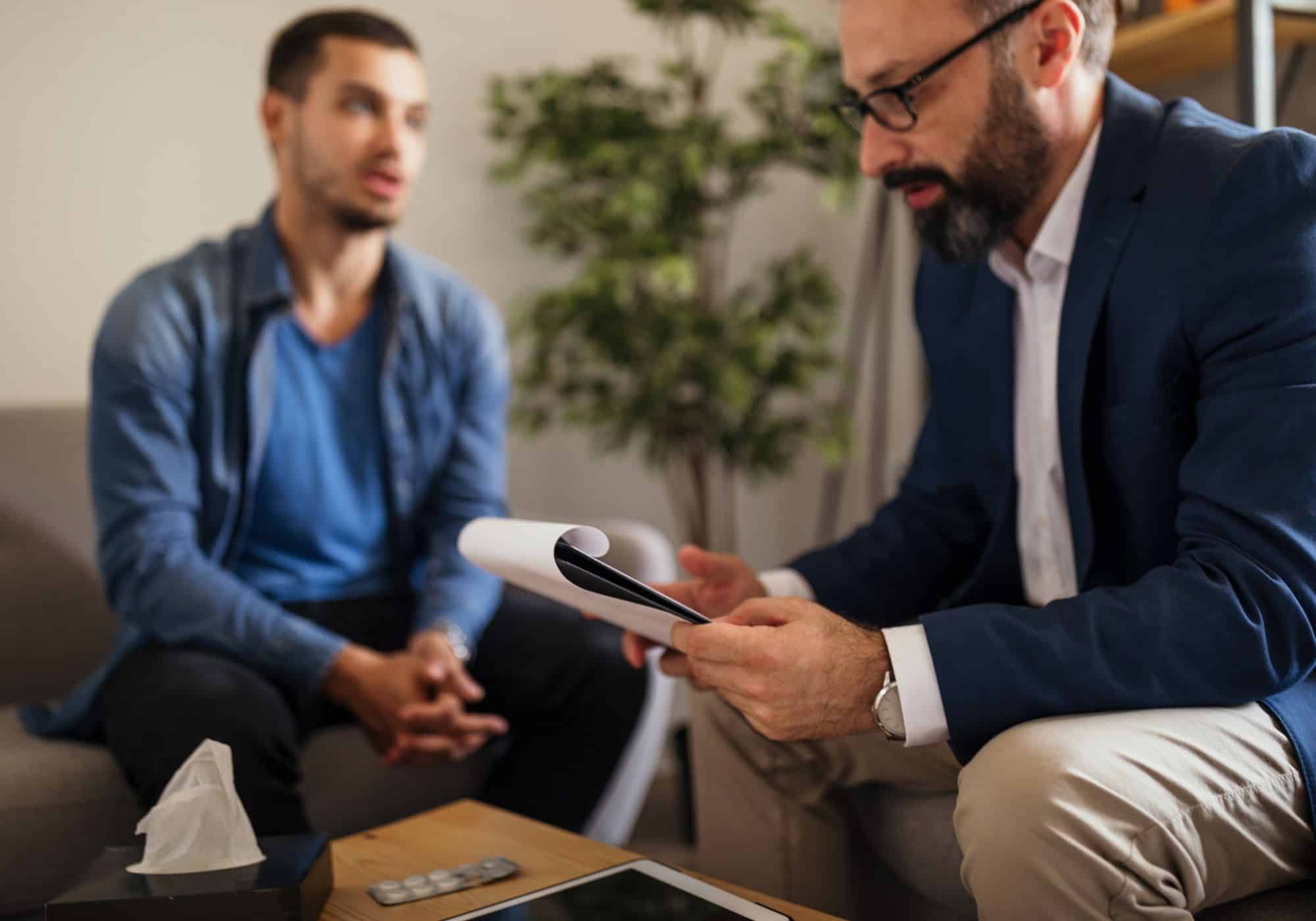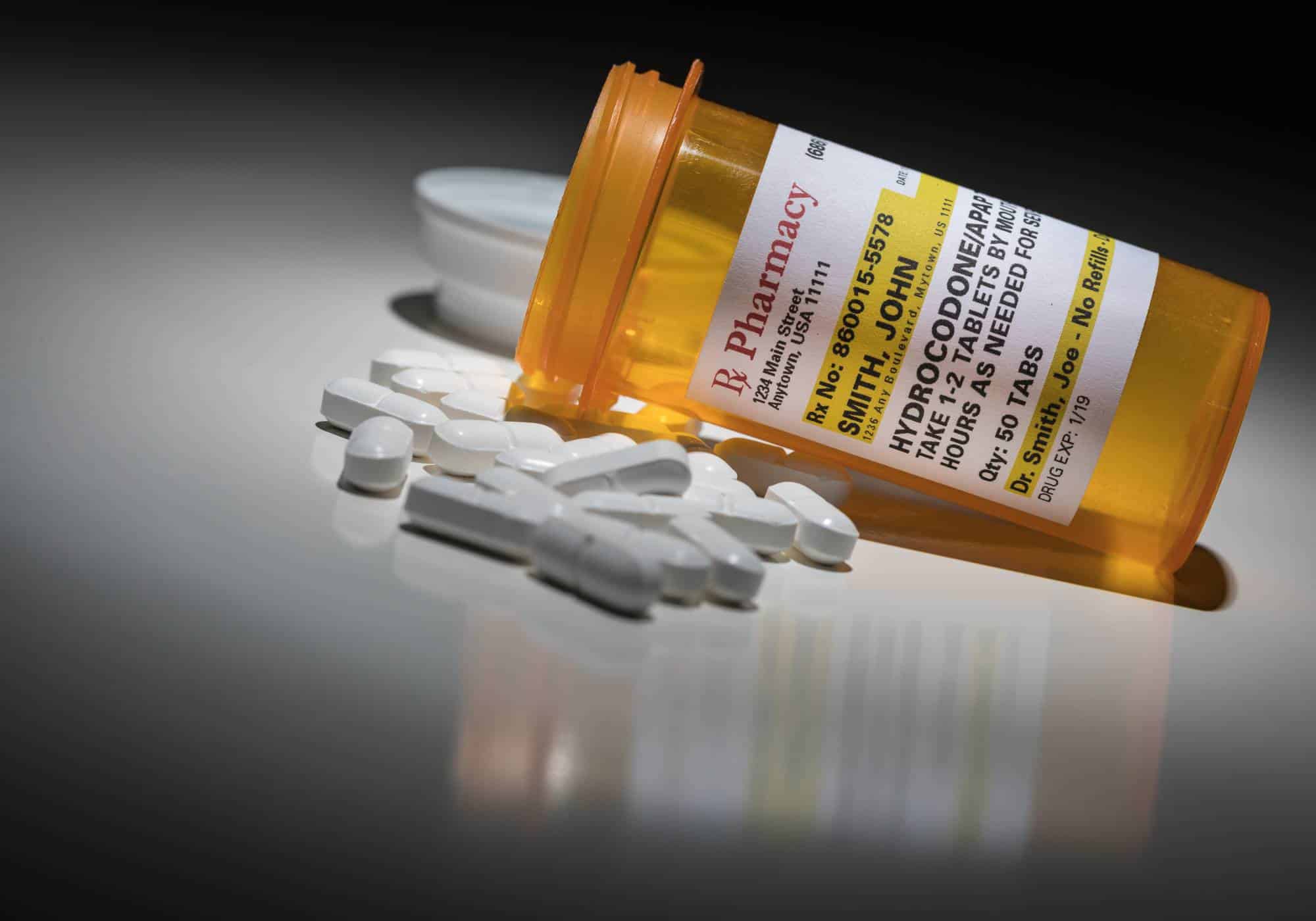At Hope Harbor Wellness, a leading opioid rehab in Atlanta, Georgia, we offer specialized opioid addiction treatment to assist individuals and their loved ones in overcoming the challenges of opioid addiction. Our team, comprised of seasoned addiction professionals, utilizes a variety of evidence-based programs to guide clients towards recovery.
Opioids, a class of drugs commonly prescribed for pain management post-injury, surgery, or for chronic health conditions, possess a high potential for addiction, even when used as prescribed. In recent years, the widespread use of opioids has significantly increased, contributing to an opioid crisis in Atlanta and beyond. At Hope Harbor Wellness, we provide comprehensive substance abuse and mental health treatment for adults in the Atlanta area, addressing the complexities of opioid addiction with care and expertise.
What are Opioids?
Opioids are a group of drugs known for their ability to depress the central nervous system, leading to sensations of euphoria and calmness, especially useful for those dealing with physical pain. They work by triggering the release of dopamine, a neurotransmitter associated with pleasure, in the brain.
While many opioids are prescribed for legitimate medical purposes, such as managing moderate to severe pain following surgery, injury, or in chronic conditions like cancer, they are also prone to misuse. Commonly abused prescription opioids include:
Heroin, opium, morphine, and fentanyl are opioids used outside of medical contexts. The side effects of opioids, such as intense relaxation or euphoria, make them appealing for abuse.
However, opioids carry a high risk of addiction, overdose, and even death. The National Institute on Drug Abuse (NIDA) reports that in 2020, opioid overdoses contributed to over 68,000 deaths in the U.S. One of the dangers of opioids is their impact on the brain regions controlling vital functions like breathing and heart rate.
If you or someone you know is struggling with opioid addiction, Hope Harbor Wellness offers comprehensive Opioid Addiction Treatment. Our dedicated team is ready to support you on your journey to recovery. Contact us today to begin; our admissions team is available to assist you.
Signs and Symptoms of Opioid Addiction
Opioid addiction, like other forms of substance abuse, is often concealed by those struggling with it. However, there are distinct physical and behavioral signs that can indicate someone might be dealing with opioid dependency.
Common indicators of opioid addiction include:
- Noticeable and unexplained mood fluctuations
- Sleeping at irregular times or for extended periods
- Significant and rapid weight loss
- Neglecting personal grooming and overall appearance
- Withdrawing from social interactions and relationships
- Engaging in hazardous behaviors to acquire opioids
Individuals addicted to opioids often employ various tactics to maintain their supply, which can include:
- Deceiving healthcare providers to obtain additional opioid prescriptions
- Doctor shopping, or visiting multiple physicians to get the same prescription
- Mixing opioids with alcohol or other drugs for enhanced effects
- Attempting to use or actually using someone else’s prescribed painkillers
- Altering the method of opioid consumption, such as taking higher doses than prescribed
These signs and behaviors are crucial indicators that someone may be suffering from opioid addiction. Recognizing these symptoms is the first step toward seeking help and beginning the journey to recovery. If you notice these behaviors in yourself or someone you care about, it’s important to seek professional support and treatment options. Hope Harbor Wellness is here to offer compassionate and evidenced-based opioid rehab in Atlanta, GA, call our admissions team today to start your opioid addiction treatment today.

Opioid Withdrawal Symptoms
Opioid withdrawal is a challenging process that occurs when a person stops using opioids after a period of regular use. The severity and duration of opioid withdrawal symptoms can vary greatly depending on several factors, such as:
- The specific type of opioid used (e.g., heroin, Percocet, Vicodin, OxyContin)
- The usual dosage and frequency of use
- The duration of opioid use
- The individual’s overall health and metabolism
Opioid Withdrawal symptoms typically follow a timeline that is influenced by whether the opioid is short- or long-acting:
- Short-acting opioids: For drugs like heroin, Percocet, and Vicodin, withdrawal symptoms can begin as soon as 12 hours after the last dose. These symptoms usually peak around 24 to 48 hours and can last up to five days.
- Long-acting opioids: For medications like OxyContin, withdrawal might not start until about 30 hours after the last dose and could persist for up to 10 days.
Common symptoms experienced during opioid withdrawal include:
- Excessive yawning and runny nose
- Profuse sweating and tearing
- Agitation and restlessness
- Muscle aches and discomfort
- Difficulty sleeping or insomnia
- Rapid heartbeat and elevated blood pressure
- Fever and occasional chills
Due to the intensity and discomfort of these withdrawal symptoms, many individuals opt for a medically supervised detoxification process. Attempting to detox independently can be daunting and risky, as severe symptoms or overwhelming cravings can lead to relapse. In a detox center or treatment facility, medical professionals provide support and interventions to ease the withdrawal experience, making it more manageable and less distressing. This approach not only prioritizes safety but also sets a solid foundation for the next steps in recovery.
Opioid Overdose
- Pinpoint Pupils: One of the most noticeable signs of opioid overdose is the dramatic constriction of the pupils, often described as ‘pinpoint’ in appearance. This change is a direct result of opioid effects on the nervous system.
- Unconsciousness: A person experiencing an opioid overdose may lose consciousness. This unresponsiveness can range from a deep sleep-like state, where they are difficult to wake, to complete unconsciousness, where they are unresponsive to any external stimuli.
- Breathing Difficulties: Opioids can significantly slow down or even stop the breathing process. This can manifest as shallow, irregular, or labored breathing, and in severe cases, respiratory arrest.
Understanding these signs is crucial for timely intervention. If you suspect someone is experiencing an opioid overdose, immediate action, such as calling emergency services and administering naloxone if available, can be life-saving. Being educated about the risks and symptoms of opioid overdose is a key step in reducing its incidence and impact.
The Benefits of Opioid Treatment in Atlanta, GA
Opioid use disorder has significantly impacted individuals and communities, presenting a challenging health crisis. However, there’s a beacon of hope in opioid addiction treatment, offering individuals a chance to regain control and rebuild their lives. Let’s delve into the key benefits of engaging in opioid rehab in Atlanta, GA.
Restoration of Physical Health: Long-term opioid use can severely impact physical health. Treatment typically begins with a medically supervised detox, facilitating a safe removal of toxins from the body. As treatment progresses, patients often notice improvements in sleep quality, energy levels, and overall physical health.
Mental and Emotional Healing: Opioid addiction frequently co-occurs with mental health issues. Rehab centers in Atlanta provide comprehensive therapy sessions to address these challenges. Patients benefit from individual and group counseling, where they can process underlying issues, develop coping skills, and strengthen their resilience against relapse.
Development of Crucial Life Skills: Beyond addressing substance use, opioid treatment programs focus on teaching vital life skills. These skills are crucial for managing everyday life challenges, handling stress, and making healthy decisions without relying on substances.
Rebuilding Personal Relationships: Opioid addiction often strains relationships. Many treatment programs include family therapy to repair and strengthen these bonds. This approach promotes understanding and communication, which are foundational for supportive relationships.
Reintegration into Society: Addiction can lead to isolation, legal issues, and unemployment. Treatment centers in Atlanta recognize this and often provide vocational training and job placement assistance, equipping individuals to successfully re-enter society and pursue fulfilling careers.
Building a Supportive Community: One of the most significant benefits of rehab is the community aspect. Patients connect with peers who share similar experiences, creating a supportive network that understands their struggles and celebrates their victories.
Aftercare and Ongoing Support: Recognizing that recovery is an ongoing process, many facilities offer aftercare services. These ensure that individuals continue to have access to support and resources even after completing the rehab program.
Opioid treatment in Atlanta, GA, is a holistic journey of healing, tackling the physical, mental, and societal aspects of opioid use disorder. Hope Harbor Wellness provides specialized opioid rehab for adults, offering tailored programs to address this complex challenge.

What Therapies Are Used in Opioid Addiction Treatment?
Opioid addiction treatment necessitates a tailored approach, as every individual’s path to recovery is unique. To effectively address the complexities of opioid addiction, a variety of therapeutic modalities are employed:
- Group Therapy: In group therapy, individuals undergoing treatment share their experiences and insights. This setting fosters a sense of community and mutual support, allowing participants to gain perspective, discuss sobriety strategies, and develop empathy and trust among peers. While individual attention is less than in one-on-one sessions, the collective wisdom and support can be incredibly beneficial.
- Individual Therapy: Individual therapy sessions offer targeted support to address the personal experiences, triggers, and underlying causes of substance use and abuse for each individual. Conducted by licensed substance abuse therapists, these sessions are crucial for personal introspection and growth.
- Cognitive-Behavioral Therapy (CBT) and Dialectical Behavioral Therapy (DBT): Both CBT and DBT are evidence-based therapies, proven effective in treating a variety of mental and behavioral health issues. These therapies focus on helping individuals recognize and modify their thought patterns and behaviors in response to specific situations.
- Motivational Enhancement Therapy (MET): MET is designed to enhance self-perception and encourage positive decision-making. It’s particularly effective for individuals who may be resistant to engaging fully in the treatment process.
- Contingency Management Therapy: Often used in treating opiate and heroin addiction, this therapy focuses on the consequences of actions, rewarding positive behaviors and discouraging negative ones. It’s a method that combines positive reinforcement with accountability.
- Arts and Music Therapies: For individuals struggling with traditional talk therapy, expressive arts and music therapies offer alternative outlets for expression. These therapies can effectively break down barriers and facilitate emotional and psychological healing.
- Additional Therapeutic Approaches: Our treatment plans also include other therapies like Eye Movement Desensitization and Reprocessing (EMDR), neurotherapy, and more. These less conventional therapies can be integrated into a comprehensive treatment plan to cater to the diverse needs and preferences of our clients.
At our opioid treatment center, we recognize the multifaceted nature of opioid addiction and strive to provide a broad spectrum of therapeutic options to support each individual’s journey to recovery. Call us today to begin your opioid rehab journey
How long is Opioid Treatment?
The journey through opioid treatment varies in duration depending on the individual’s specific needs and circumstances. Here’s a general breakdown of what you can expect:
- Detox Phase: Typically, the initial step in opioid treatment involves detoxification, which usually spans three to seven days. This phase is crucial for safely managing withdrawal symptoms under medical supervision.
- Residential Inpatient Care: Following detox, the next phase often involves residential inpatient treatment, which can range from a few weeks to as long as 90 days. The duration here is dependent on the individual’s specific needs, including the severity of addiction and their overall progress.
- Outpatient Care: After completing inpatient treatment, transitioning to outpatient care is common. This phase is more flexible and can be ongoing, allowing individuals to continue their recovery journey while reintegrating into daily life. Outpatient care is vital for reinforcing the principles of sobriety and providing sustained support.
- Long-Term Support: Recovery from opioid addiction is an enduring process, often requiring ongoing support. This may involve mentorships, participation in 12-step programs, or other forms of community support. Even when formal treatment phases are complete, the need for a supportive network remains crucial. This support can come in various forms, not necessarily routine meetings, but rather having a trusted mentor or support group to rely on, especially during challenging times.
It’s important to understand that recovery from opioid addiction is a personal and lifelong journey. The need for support doesn’t necessarily end with formal treatment. Staying connected with a support system is invaluable for maintaining long-term sobriety and navigating the challenges of recovery.

Opioid Addiction Treatment in Atlanta?
In Atlanta, addressing opioid use disorder involves a multifaceted approach that extends beyond traditional rehabilitation services. At Hope Harbor Wellness, we offer outpatient treatment tailored to the unique challenges faced by individuals struggling with opioid addiction. Our programs are designed to support not only addiction recovery but also the various aspects of life that are impacted by addiction.
Partial Hospitalization Program (PHP)
Often referred to as “day treatment,” PHPs represent the most intensive form of outpatient care for opioid addiction. In this program, participants engage daily in a structured schedule that encompasses both group and individual therapy, family therapy sessions, and life skills training. While PHPs do not require overnight stays, they demand significant time commitment, typically involving three to five days per week spent at the treatment facility.
Intensive Outpatient Program (IOP)
A step down from PHP in terms of intensity, IOP offers more flexibility and is particularly suitable for those who need to balance treatment with work or educational commitments. IOP sessions usually last about three hours per day, incorporating elements of PHP but allowing for a greater degree of personal freedom.
Outpatient Drug Rehab
This option is ideal for individuals who require less intensive support and may already have a strong support system at home or have successfully completed higher levels of care. Outpatient rehab typically involves weekly or bi-monthly sessions with healthcare professionals for ongoing therapy or medication management, serving as a supportive framework to sustain long-term recovery.
Each of these programs is tailored to meet the unique needs of individuals at different stages of their recovery journey, ensuring a supportive and effective treatment experience. If you or a loved one is struggling with opioid addiction, call our dedicated team to begin your opioid addiction treatment in Atlanta, GA.
Can Medications Treat Opioid Addiction?
Yes, medications can play a crucial role in treating opioid addiction. The Food and Drug Administration (FDA) has approved specific medications that, when combined with behavioral therapies, form an effective approach known as Medication-Assisted Treatment (MAT). MAT can be an integral part of the entire treatment process, from the initial detox phase to ongoing outpatient rehabilitation.
The FDA-approved medications that are commonly used in the treatment of opioid addiction include:
Methadone: This medication reduces opioid cravings and withdrawal symptoms by acting on the same opioid receptors as the misused opioid but without producing the same high. It’s typically dispensed daily in a controlled clinical setting.
Buprenorphine: Like Methadone, Buprenorphine reduces cravings and withdrawal symptoms. However, it can be prescribed or dispensed in various settings, including a doctor’s office, making it more accessible for ongoing treatment.
Naltrexone: Differing from Methadone and Buprenorphine, Naltrexone works by blocking the euphoric and sedative effects of opioids. It is useful for individuals who have already undergone detoxification and are looking to maintain their recovery.
These medications, as part of MAT, have shown significant effectiveness in improving patient survival, increasing retention in treatment, and reducing illicit opiate use and other criminal activity among people with substance use disorders. It’s important to note that MAT treatments are tailored to meet the individual needs of patients, and a comprehensive approach, including counseling and other behavioral therapies, offers the best chances for successful recovery.

Is Opioid Addiction Treatment Covered by Insurance?
For those worried about the cost of opioid addiction treatment, it’s important to know that many insurance plans may cover these expenses, either in full or in part. At Hope Harbor Wellness in Atlanta, GA, we understand the financial concerns that come with seeking treatment. Our intake specialists are available to guide you through understanding your insurance coverage and options for opioid rehab. We offer a range of comprehensive treatment solutions for opioid addiction, tailored to the specific needs of each individual. If you’re in or around Atlanta, GA, and are seeking help for opioid addiction, don’t hesitate to call us or fill out our online insurance verification form. We’re here to assist you in finding a treatment plan that aligns with your financial and therapeutic needs.
Get Quality Opioid Addiction Treatment in Atlanta, GA
If you are looking for an “opioid addiction treatment near me” or “opioid rehab near me,” look nor further. At Hope Harbor Wellness in Atlanta, GA, we are dedicated to helping individuals grappling with opioid addiction, as well as offering support to their families. Our approach includes comprehensive outpatient treatment programs tailored to the unique needs of each individual. In collaboration with detox centers, we ensure a medically supervised detoxification process, which forms the first crucial step in the journey towards recovery. Our treatment plans are individualized, addressing not only substance use disorder but also any accompanying mental health conditions.
If you or someone you know is struggling with opioid addiction and is ready to embark on the path to recovery, don’t hesitate to reach out to us. Our team is here to provide you with more information about opioid addiction and guide you through the detox and treatment process. Contact Hope Harbor Wellness today to begin your journey towards a healthier, substance-free life.
Opioid Addiction Treatment Frequently Asked Questions
Are Opioids Addictive?
Yes, opioids are highly addictive due to their powerful effect on the brain’s reward system. They produce euphoria while relieving pain, leading to a high risk of developing dependence and addiction, especially with prolonged use.
Why Are Opioids Addictive?
Opioids are addictive because they bind to receptors in the brain, releasing large amounts of dopamine, which creates a feeling of intense pleasure and reward. This response can lead to repeated use and eventually, addiction.
What Is the Difference Between Opiates and Opioids?
Opiates are natural substances derived from the opium poppy plant, like morphine and codeine. Opioids, a broader category, include opiates and also synthetic or semi-synthetic drugs like oxycodone, hydrocodone, and fentanyl, which are chemically similar and act on the same brain receptors.
What Are Some Forms of Treatment for Opioid Addiction?
Treatment for opioid addiction includes medication-assisted treatment (MAT) using drugs like methadone, buprenorphine, or naltrexone, combined with behavioral therapies, counseling, and support groups to address both the physical and psychological aspects of addiction.
How Long Do Opioids Stay in Your System?
The duration opioids stay in the system varies depending on the type of opioid, dosage, and individual metabolism. Generally, they can be detected in urine for 1-3 days, in blood for up to 24 hours, and in hair for up to 90 days.
What Drugs Are Opioids?
Opioids include a range of drugs, both legal and illegal. Prescription opioids include oxycodone, hydrocodone, morphine, and fentanyl, while heroin is an illegal opioid. All these drugs have a high potential for addiction.
What Are the Options for Opioid Addiction Treatment in Intensive Outpatient Programs (IOP)?
IOP for opioid addiction offers structured therapy and support while allowing patients to live at home. It typically includes regular counseling, group therapy, and may incorporate medication-assisted treatment, suitable for those with moderate addiction levels.
What Is Partial Hospitalization Program (PHP) for Opioid Addiction?
PHP for opioid addiction provides a more intensive treatment option than IOP, involving daily therapy sessions and comprehensive support. It’s ideal for individuals needing structured care while maintaining some level of independence.
Why Can an Opioid Overdose Cause Death?
An opioid overdose can cause death primarily due to respiratory depression. Opioids affect the brain’s areas that control breathing. In high doses, they can significantly slow down or even stop breathing, leading to hypoxia (insufficient oxygen reaching the brain), which can result in coma, permanent brain damage, or death. This risk is heightened when opioids are combined with other substances, particularly depressants like alcohol or benzodiazepines.









